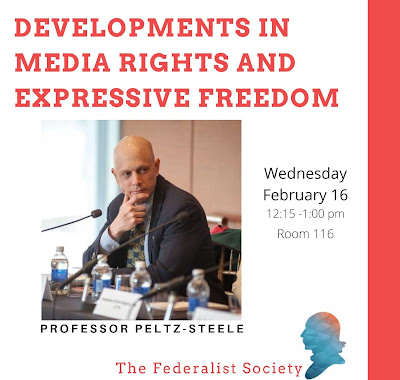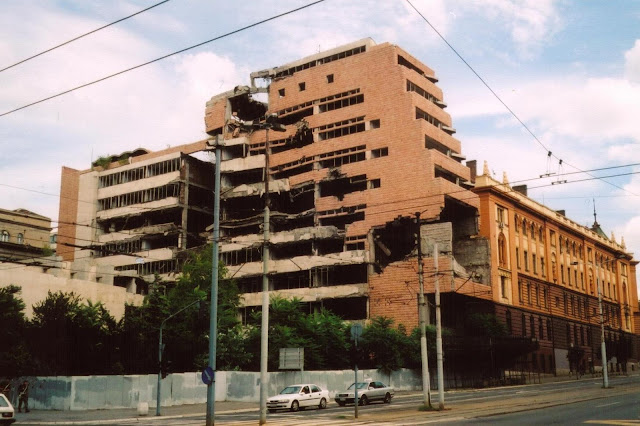June 22, KIGALI—The usually biennial Commonwealth Heads of Government Meeting, "CHOGM 2022," postponed from 2020, is under way in Kigali, Rwanda, marking both a sign of pandemic recovery and a possible Commonwealth pivot to reemphasize development.
The Commonwealth of Nations is an association of 54 states, ranging from island nations such as Dominica and Nauru to larger nations such as Australia, Canada, India, and South Africa. Constitutional origins in the British Empire, and, thus, shared history, language, and legal systems tie together almost all of the Commonwealth member states.
Notionally, the Commonwealth dates to the late 19th century; it was formalized in the early 20th century. The Commonwealth really took off functionally to fill the governance gaps left by decolonization and World War II in the mid-20th century. With the Crown as titular head, the Commonwealth mission today emphasizes rule of law, democratic governance, and human rights. Historical ambitions in the vein of common defense were largely displaced by Cold War realignments and the rise in power of the United States and NATO.
To sport fans, the Commonwealth might be best known for the quadrennial Commonwealth Games, to be hosted this summer by Birmingham, England. In contrast with the Olympics, the Games highlight sports that the United States has weakly or not embraced, such as cricket, netball, and rugby.
Commonwealth participation is not quite a multilateral treaty obligation, because membership is voluntary and terminable at will. Members can be suspended, but not expelled. In Africa, members such as Nigeria and Zimbabwe have had off and on-again relationships with the Commonwealth with waning and waxing commitments to human rights. Members such as Gambia and Maldives have left and rejoined the Commonwealth.
Rwanda's membership in the Commonwealth is an unusual case, adding to the significance of CHOGM 2022 taking place here. The precarious Kingdom of Rwanda was forcibly superseded by German colonization in 1884, then passed into Belgian hands from World War I until 1959. Revolution led to 1962 independence and cycles of tumult. The infamous 1994 Rwandan genocide, in which up to one million ethnic Tutsi were brutally slaughtered in about 100 days, was not a singular horror, rather a climactic installment in decades of violence, as power shifted among competing factions.
Rwanda's 2009 accession to the Commonwealth, the culmination of a six-year campaign, was therefore controversial. Varied factors motivated Rwanda to apply, despite its lack of constitutional ties to the British Empire. The Francophone country stood to gain global prestige and to strengthen foreign economic ties, both intercontinentally and with Anglophone neighbors in East Africa, as well as social development opportunities in youth, education, and sport.
Rwanda also had a sour relationship with France over French support for the Hutu government responsible for the genocide. France played an active role in Rwanda after independence, politically and militarily, effectively treating the country as its own former colony, for better or worse. Rwandan membership in the Commonwealth therefore represented a deliberate rejection of Francophone heritage. In 2021, French President Emmanuel Macron apologized for France's role in precipitating and failing to stop the genocide, as well as subsequent resistance to investigation. Rwandan President Paul Kagame accepted the apology.
Both intergovernmental and nongovernmental human rights groups, including the Commonwealth's own investigators, found Rwanda wanting in the 20-aughts, its record on human rights still not up to snuff. They warned that Rwandan membership would degrade Commonwealth standards. Commonwealth purists objected to Rwandan membership for the country's lack of British colonial history. Rwanda looked to the example of Mozambique, a former Portuguese colony and Lusophone nation that had been admitted in 1995. In the 1990s and 20-aughts, Commonwealth members disagreed internally over whether to retain the requirement of "historic ties" to Britain. Mozambique had made a strong case upon its valuable support for Commonwealth opposition to South African apartheid. Expansionists prevailed again in 2009, and Rwanda won its membership.
In Africa, CHOGM, which has met since 1971 in Singapore, has been hosted by Zambia (1979), Zimbabwe (1991), South Africa (1999), Nigeria (2003), and Uganda (2007). Queen Elizabeth attended in Uganda, her first visit there since 1954, when Queen Elizabeth National Park took her name. The Prince of Wales is in Kigali now. So bringing CHOGM 2020/2022 to ostensibly Francophone Rwanda is a noteworthy achievement for the Kagame government.
But human rights groups have never abated in their discontent. Especially the recent abduction and imprisonment in Rwanda of "Hotel Rwanda" hero and human rights activist Paul Rusesabagina casts a shadow over CHOGM 2022 that the government would like delegates to ignore. I
have written previously about the Rusesabagina matter and a related pending lawsuit in the United States by the Rusesabagina family.
 My family and I arrived in Kigali last weekend to find a rush-hour traffic jam aggravated by road closures for CHOGM 2022. The formal CHOGM meeting of dignitaries happens Friday and Saturday, but delegates are here all week to do the real diplomatic work. The black, brown, and white faces of the Commonwealth circulate in the CBD, and plastic-encased CHOGM credentials dangle from lanyards. Heavily armed police and private security monitor every corner; the last thing Rwanda needs is a black-eye security breach. The CBD is plastered with posters in the vein of "Visit Rwanda" and "Invest in Rwanda," bearing images of the country's legendarily hills, green terrain, and exquisite fauna.
My family and I arrived in Kigali last weekend to find a rush-hour traffic jam aggravated by road closures for CHOGM 2022. The formal CHOGM meeting of dignitaries happens Friday and Saturday, but delegates are here all week to do the real diplomatic work. The black, brown, and white faces of the Commonwealth circulate in the CBD, and plastic-encased CHOGM credentials dangle from lanyards. Heavily armed police and private security monitor every corner; the last thing Rwanda needs is a black-eye security breach. The CBD is plastered with posters in the vein of "Visit Rwanda" and "Invest in Rwanda," bearing images of the country's legendarily hills, green terrain, and exquisite fauna.
Last night I walked through a night-market showcase of life and culture in Rwanda (and in smaller sections, Uganda and Mozambique), from agricultural supplies and textiles to food and dance. Smiling representatives eagerly promoted their wares. I succumbed to the hype and bought some green—literally and figuratively—cosmetic products for my wife, as well as some Rwandan coffee. (I'd already bought Rwanda and Musanze FC kits for myself.) I took a selfie in front of gigantic letters spelling "KIGALI."
Food stalls offered delights from East Africa, including Rwanda-based restauranteurs in foreign cuisines, such as Indian and Ivorian. An aside: The highlight of the showcase for me was Kigali-based "
Now Now Rolex," which makes gourmet ethnic variations of the classic Ugandan street food. A rolex is an egg omelette rolled in chapati, usually with other ingredients, such as diced tomatoes and onions, added to the taste of the buyer. Typically for no more than a dollar or two, the wrap is cooked quickly in a hot skillet, crepe style, at a roadside cart or stall. The name "rolex" derives from "rolled eggs," but for its quick preparation also plays cheekily with the name of the watch brand. Now Now's gourmet options incorporate ingredients for variations such as French, Italian, and Mexican, still just $2 a pop; I had "the Rwandan," featuring minced beef. Oh, and a delectable vodka mule to wash it down.

Notwithstanding the festive atmosphere, the genocide is never far from mind in Rwanda. CHOGM 2022 takes place against the backdrop of Kwibuka 28, a three-month remembrance of the genocide sponsored by Rwanda and the African Union. With the theme "Remember-Unite-Renew," Kwibuka is recognized with its own gigantic letters at the Kigali Genocide Memorial. Newscasters on Rwandan TV (English-language for me) and videos at the cultural showcase readily recognize the genocide, but reiterate a forward-looking "never again" message. They refrain from revisiting gruesome atrocities and scarcely acknowledge the ongoing public health problem of post-traumatic stress.
Personally I've been skeptical of Rwanda's reconciliation with the genocide and purported triumph over ethnic conflict. The mantra one hears throughout Rwanda today is that "we are all Rwandan now," meaning ethnic differentiation is a thing of the past. But how does a people turn that page so quickly, even in the span of one generation? Nothing I learned about the genocide at the Kigali Memorial gave me solace. The way that nationalistic leaders and opportunistic, wanna-be warlords manipulated information and exploited mass media—sound familiar?—to turn ordinary people into torturers and murderers of their friends and neighbors; decades of violence and 100 days of carnage to rival the Holocaust; and then it all just evaporated, never to happen again? I noted that the impressive and truth-rendering Kigali Genocide Memorial, which houses the remains of a quarter million people and where Prince Charles laid a wreath today, was constructed in the 20-aughts by a UK NGO, not by the Rwandan government.
To President Kagame's credit, Rwanda looks and feels peaceful. I found only warm and welcoming people traveling in the country's lush northwest. I walked around Kigali day and night with a comfort level I've had in no other African capital (though I am not recommending being carefree here; I take precautions). Kagame brokered Commonwealth membership and landed CHOGM.
 |
| Kigali |
At the same time, Kagame has been president since 2000. He was a leader of the domestic military force that ultimately quelled the genocide, and many say he has been running the country de facto since then. For perspective, that's since Bill Clinton was President of the United States.
In a recent book, journalist Michela Wrong unflinchingly painted Kagame as a wolf in sheep's clothing. (I've read about the book, but not read the book.) She charged him with political assassination of a rival and dictatorial repression of dissent. According to descriptions of Wrong's portrayal, a "sinister" and "chilling" head of state lurks behind the rendering of peace and promise that the West is so eager to embrace.
Wrong's take squares with details alleged in the abduction of Rusesabagina. Assiduously avoiding return to Rwanda, Rusesabagina persistently criticized the Kagame regime and alleged failure to reconcile meaningfully with the genocide. The Rusesabagina family lawsuit alleged that a covert Rwandan intelligence officer lured Rusesabagina away from his Texas residence for a purported speaking engagement in Burundi, then orchestrated his abduction to Kigali from a Dubai layover. Rusesabagina's subsequent criminal prosecution in Rwanda on terrorism charges had every hallmark of a show trial. The Kagame administration denies involvement in the abduction and any impropriety in the prosecution.
I wonder whether Rwanda's enthusiastic embrace of Kwibuka, the annual genocide commemoration, represents genuine engagement with reconciliation or mere lip service to human rights platitudes that gratify western leaders and smooth the pathways of foreign investment. I haven't seen a single mention in Rwandan media of demands by human rights groups that Rusesabagina be released. Such as I've seen, discussion of human rights in Rwanda, besides recognition of the genocide as a historical event and cause for unified patriotism going forward, has been limited to the promotion of innovations in public health and sustainable agriculture.
Meanwhile, violence and unrest in the neighboring Democratic Republic of the Congo casts another unwanted shadow over CHOGM 2022. Like Rwanda, the DRC (formerly Zaire) has convulsed with violence since its Belgian decolonization in the 1960s. Millions have died just since the 1990s. Since 2015, the eastern border region, which shares Lake Kivu and the Virunga mountain range with Rwanda, has been the site of a bloody confrontation, costing thousands of civilian lives. Supported by UN peacekeepers, the Congolese army has been locked in conflict with "M23" revolutionaries. Making matters worse, Kinshasa accuses Kigali of funding M23 in a bid to expand Rwandan territory. Rwanda denies involvement.
I know next to nothing about the political situation in the DRC, so my perceptions are informed only by experience on the Rwandan side of the border. The establishment of a Tutsi government after the genocide propelled
Congolese Tutsi into Rwanda, and nearly 2 million Hutu left Rwanda for
the DRC. More than once in the Lake Kivu region, I met Congo-born 20-somethings—the average age in Rwanda is a remarkable 19—whose Rwandan families relocated there after the genocide, only to return later to Rwanda as refugees of war in the DRC. Though born to Rwandan families, the persons I met identified as Congolese and lamented that they could not go home.

I came close to the DRC border twice. The first time, in the Virungas, I had an escort of four soldiers with automatic weapons. Armed escorts are common in East African parks to protect tourists from wild animals (ideally to scare them with gunfire, not to shoot them). But this was more than animal deterrence. The soldiers acknowledged that Rwandan officials are worried about incursion from the DRC, especially while CHOGM is ongoing in Kigali. I was encouraged not to linger at the summit of Mount Bisoke, whose crater lake straddles the border. (I was not allowed to photograph soldiers or border posts.)
 |
The Virunga volcanic range sits at the junction of the DRC, Rwanda, and Uganda.
|
I came close to the border as well in the lakeside town of Gisenyi. A Rwandan official invited me closer to the line than I cared to be. I could see where queues, asphalt road, and orderly buildings on the Rwandan side gave way to dirt road, a shantytown, and a colorful, chaotic, and predominantly pedestrian marketplace on the Congolese side.
As of this writing, CHOGM 2022 is progressing without incident, and Rwanda is availing of the opportunity to put its best foot forward in the world. Surely for the sake of everyone I've met here, I hope that Rwandan participation in the community of nations affords, for every Rwandan who wants it, opportunity for more than subsistence living.
However, for that to happen, Commonwealth delegates will have to see past colorful souvenirs, product pitches, and reconciliation rhetoric. Rwanda needs a plan for infrastructure, educational opportunity, and an improved standard of living for all its people. Rwanda does not need recolonization through the finance sector.
For an indulgent exploration of the contemporary aftermath of the Rwandan genocide and the precarious relationship with the DRC, I highly recommend the television series Black Earth Rising (2018), a co-production of Netflix and BBC Two, written and directed by Hugo Blick and starring Michaela Coel and John Goodman. The story is fictional, but the riveting expression of social and political tensions is spot on. HT @ Jason Peura.
For a moving documentary on the plight of the gorillas in the Virunga mountains amid the chaos of war in the DRC, see the Oscar-nominated Virunga (2014), also available on Netflix.

.jpg)









.jpg)
.jpg)














